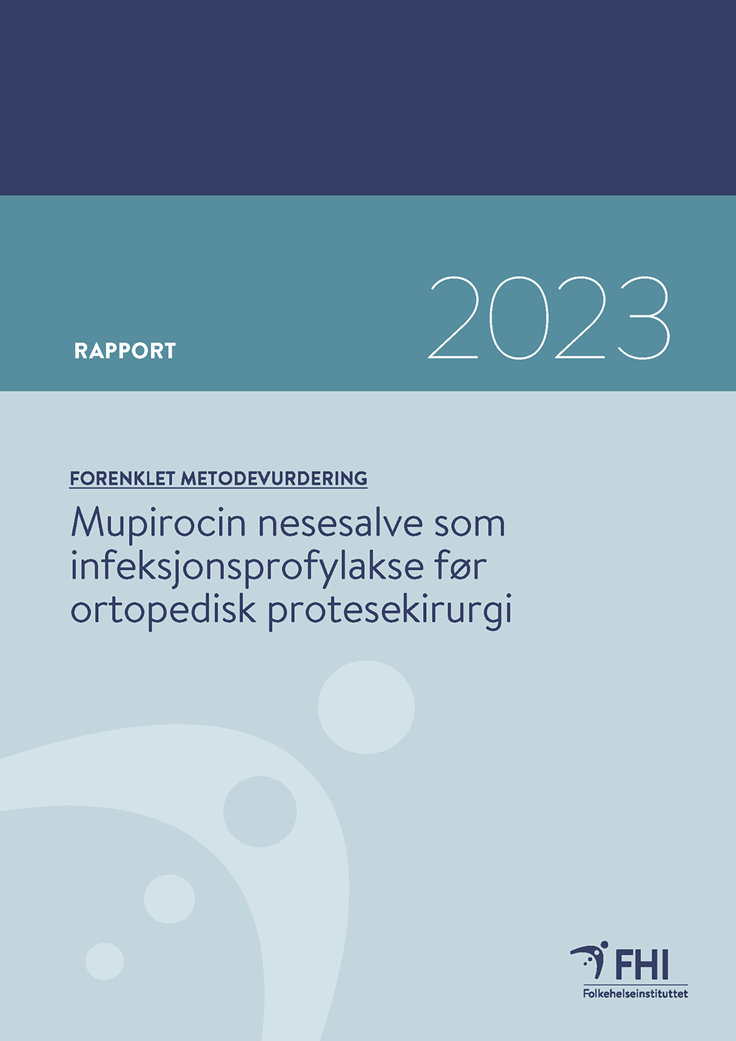Mupirocin nasal ointment as infection prevention prophylaxis prior to orthopaedic prosthesis surgery: a rapid health technology assessment
Health technology assessment
|Published
NIPH was commissioned by the Commissioning Forum in The National System for Managed Introduction of New Health Technologies within the Specialist Health Service in Norway to carry out a rapid health technology assessment of mupirocin nasal ointment as prophylactic treatment for hip and knee replacement surgery.
Key message
Postoperative infections, in particular deep infections, are associated with increased morbidity and mortality, and increased cost for the health care system. In Norway, the incidence of deep postoperative infections after orthopaedic prosthesis surgery is 1-1.5%. About 20% of these infections are caused by Staphylococcus aureus (S. aureus). Several studies have investigated the effect of prophylactic use of mupirocin nasal ointment, as a way of reducing the occurrence of postoperative infections with S. aureus.
We performed a systematic literature search based on the literature search in a Canadian health technology assessment from Ontario Health (2022).
Efficacy and resistance
- We included one randomised controlled trial that investigated profylactic use of mupirocin nasal ointment, compared with placebo nasal ointment, prior to orthopedic surgery
- The results showed no difference in infection rate between the groups
- The study did not identify resistance to mupirocin in the follow-up period of one month
Health economics
A review, presented in tabular form, of health economic studies showed that universal decolonization with mupirocin tended to be more cost-effective than targeted and no decolonization. A threshold analysis showed that the costs associated with preoperative prevention with mupirocin are probably recouped if the cost per avoided hospital infection is NOK 90,000 or higher. However, there is considerable uncertainty associated with the estimate.
The evidence is very limited, and it is therefore not possible to draw conclusions about the effect of mupirocin nasal ointment on postoperative infections or the risk of resistance.


